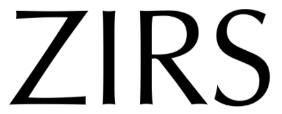
Leipzig
Research Context of the Summer School
Over the past decades, the summer school of Leipzig’s Graduate School Global and Area Studies has established itself as a productive meeting place for the interdisciplinary discussion of transnational, transregional, transcultural, and global encounters and entanglements as well as new trends in the research of globalization in general, in a historical and contemporary perspective. The 2023 edition, which is organised in close cooperation with the Centre for Interdisciplinary Regional Studies (ZIRS) at Martin Luther University Halle-Wittenberg, and with the Research Centre Global Dynamics (ReCentGlobe), addresses questions of resource use and its connection to global and planetary crises.
This summer school addresses the historical, social, cultural and political processes of turning something into a resource, and the negotiations of scarcity and urgency connected to such processes. By asking why and when people understand something as a specific resource and what people to act upon diagnoses of abundance, scarcity and urgency, we seek to engage with the historically and contemporarily varying efforts of people to cope with global and planetary challenges and ask about their role in the formation and transformation of multiple world orders. These dynamics include, for instance, issues of energy transition, food security, and planetary health. We explicitly aim to include both global and planetary perspectives, with the former continuing to examine human actors and their globalisation projects, while the latter focuses on more than human-driven and very long-term developments: the interconnections of human life with other living beings, ecosystems and climate change. We welcome projects that ask what counts as a resource, how resources are un/made, and how such projects and processes are connected to crises.
The summer school is intended to provide participating PhD candidates with an opportunity to engage in an intense exchange with fellow PhD candidates and postdocs from different disciplinary and institutional backgrounds on topics of common interest and to network across disciplinary, as well as geographical, boundaries. Thus, with great enthusiasm we invite young and early-career researchers from all over the world whose research interests lie at the nexus of the production and consumption of resources and global or planetary crises.
Thematic Focus of the Summer School
We welcome papers that focus on resources, consumption and crises, and explore the relationship between them across spatial and temporal scales and from different disciplinary and interdisciplinary perspectives, also with regard to the interwoven relationships between human and environmental factors, and the permeable boundaries between them. We invite authors to reflect upon different modes of using such terms and the work these terms might or might not do in deepening our understanding of historical or contemporary junctures. Questions to be addressed could be (but are not limited to):
• What processes underpin(ned) (the un/making) of (what) resources, when and for whom? In what ways were/these un/makings negotiated? How do such processes fit into, fuel, or prevent which globalization projects?
• How were/are resources used, how did/do uses shift, and were/are contested?
• How were/are moments of resource scarcity or abundance brought into being and how do they connect to (what kind of) urgency and crises?
• What makes a (resource) crisis and how are different crises dis/connected by/through/with (what) resources?
Sequence of Events of the Summer School
The summer school is organized into panels of 3–5 presentations each. Additionally, invited keynote speakers will introduce main aspects of the general theme. At the end of the summer school, a final discussion will bring the major findings together.
Young researchers can apply to hold individual presentations or to organize a panel. In the latter case, researchers are invited to submit applications containing a description of the panel’s main goals and its relevance to the overall topic of the summer school, plus a list of possible speakers with an indication if they have already agreed or they have to be contacted after the acceptance of the panel. The selection of the panel will be undertaken by the organizing team.
The conference language is English, but contributions in German are also welcome.
Individual time slots will be assigned by the organizers of the summer school, with preferences of participants being taken into consideration. In addition, active participation in the discussions of the summer school is expected.
